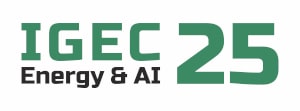Author: Qing WANG (The Hong Kong Polytechnic University) - Anion exchange membrane water electrolyzers (AEMWEs) have emerged as a promising green hydrogen production technology, combining the advantages of high rates from proton exchange membrane electrolyzers with the low-cost benefits (non-precious metal catalysts) of alkaline liquid electrolyzers. However, their large-scale commercialization is still hindered by performance limitations and durability challenges under high-rate operation. Therefore, elucidating the underlying mechanisms of electrochemical behaviors at different scales under realistic operating conditions and achieving precise characterization of internal processes are critical for performance improvement and stability enhancement of electrolyzers.
This study is dedicated to the precise characterization and diagnosis of internal polarization processes in an AEMWE. The performance of the electrolyzer is governed by a combination of electrochemical mechanisms, including ohmic resistance, ionic transfer, reaction kinetics, and mass transport. In this study, we develop an operando diagnostic framework based on electrochemical impedance spectroscopy (EIS) and distribution of relaxation times (DRT) technique. This approach enables model-free decoupling of polarization processes across multiple frequency domains, effectively identifying the key performance-limiting factors. Furthermore, by investigating the coupled effects of applied current density, electrolyte concentration, temperature, and flow rate, we reveal the characteristic response patterns of individual electrochemical processes. We also clarify the regulation mechanisms of ionomer properties and content within the cathode catalyst layer, particularly their influence on ion transport pathways. In addition, long-term stability assessments of various cathode electrodes provide critical experimental evidence for electrolyzer design optimization and system performance improvement.
